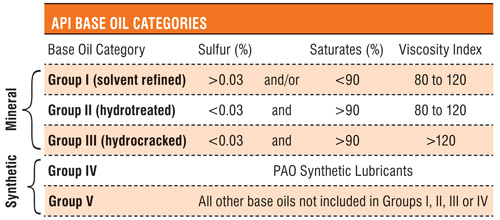daithi23 I sat down and picked through the great tdi debate of 5W40 505.01 v 5W30 504.00 petrol spec/ 507.00 diesel spec LongLife oil, hearing all the arguments and opinions until my head screamed.
It lacked science and proof.
Now that I understand I'm truly horrified what oil people put in their S3's. 502.00 OMG.
And when people say 5W30 504.00 /507.00 LongLife is **** thin viscosity compared to a 5W40 505.01 at higher temps well at 100°C there is the thickness of water in it, 504.00 will be 12 mm2/s and 5W40 505.01 13mm2/s and 1 unit of mm2/s is the thickness of water.
It's all about the oil basestock groups and additive package, more so the basestock and the final products given manufacturer approval spec to which the Lubrizol comparison tool was a gem of understanding.
It's marketings fault really they dress things up, the earlier mentioned Motul 8100 502.00 spec won't be a fully synthetic instead we're getting conned as it will be a mineral basestock .
Even the higher performing 505.01 will be a mineral basestock too.
502.00/505.00 v 502.00/505.01
Now 502.00/505.01 v 504.00 /507.00
As you can see the oil that fills the most of the web is the higher quality more complete oil owing to higher group basestocks and higher concentration additive package.
Like I said earlier I've found out we're all being lied to about the classification of fully synthetic oil .
To use the term "fully synthetic" on oil basestock Group III MINERAL oil is a legal marketing term
So if you're using 505.01 spec Quantum Platinum 5w40 , it's basestock is 100% MINERAL oil
albeit a refined severely hydrocracked one .
And 504.00 / 507.00 Quantum LongLife III is Group III mineral with 2 proper synthetics from Groups IV and top group V . Sadly I don't know in what proportions.
Group I
Group I base oils are classified as less than 90 percent saturates, greater than 0.03 percent sulfur and with a viscosity-index range of 80 to 120. The temperature range for these oils is from 32 to 150 degrees F. Group I base oils are solvent-refined, which is a simpler refining process. This is why they are the cheapest base oils on the market.
Group II
Group II base oils are defined as being more than 90 percent saturates, less than 0.03 percent sulfur and with a viscosity index of 80 to 120. They are often manufactured by hydrocracking, which is a more complex process than what is used for Group I base oils. Since all the hydrocarbon molecules of these oils are saturated, Group II base oils have better antioxidation properties. They also have a clearer color and cost more in comparison to Group I base oils. Still, Group II base oils are becoming very common on the market today and are priced very close to Group I oils.
Group III
Group III base oils are greater than 90 percent saturates, less than 0.03 percent sulfur and have a viscosity index above 120. These oils are refined even more than Group II base oils and generally are severely hydrocracked (higher pressure and heat). This longer process is designed to achieve a purer base oil. Although made from crude oil, Group III base oils are sometimes described as synthesized hydrocarbons. Like Group II base oils, these oils are also becoming more prevalent.
Group IV
Group IV base oils are polyalphaolefins (PAOs). These synthetic base oils are made through a process called synthesizing. They have a much broader temperature range and are great for use in extreme cold conditions and high heat applications.
Group V
Group V base oils are classified as all other base oils, including silicone, phosphate ester, polyalkylene glycol (PAG), polyolester, biolubes, etc. These base oils are at times mixed with other base stocks to enhance the oil’s properties. An example would be a PAO-based compressor oil that is mixed with a polyolester. Esters are common Group V base oils used in different lubricant formulations to improve the properties of the existing base oil. Ester oils can take more abuse at higher temperatures and will provide superior detergency compared to a PAO synthetic base oil, which in turn increases the hours of use.
What are the advantages of Synthetics over Mineral oils?
Superior wear control
Superior friction control
Superior thermal stability
Superior aging characteristics
Superior film strength
Higher Viscosity Indices
Superior detergency levels
Translated, that means:
Improved fuel economy
Improved power output
Cleaner engine surfaces
Longer oil life
Reduced engine wear
Can a Mineral Oil be called Synthetic?
The answer is yes. With the advances in refining of crude oils, a process of hydrogen cracking is used to ensure low levels of Sulphur, Aromatics and improved levels of saturated bonds. The argument that was put forward and won in the North American market is that this type of mineral base oil is effectively similar to a synthetic oil in performance terms so in effect the marketing department can legally use the term synthetic (a very emotive term) for Group III base oils.








